Performance
Before jumping into my testing, I do always like to take a look at CrystalDiskInfo. Mainly just to confirm that we are running at the transfer mode that we should be which in this case is PCIe 3.0 at an x4 speed. I also use this to document the firmware revision that I tested, because those do sometimes change over time.

My first few tests are all in CrystalDiskMark. I start with the older CrystalDiskMark 6 which is what we have used in past reviews to take a look at sequential read and write speeds. The Rocket Q came in right with the Viper VPN100 here which uses the same controller. This was a touch slower than the WD Black drives but still extremely fast for a PCIe 3.0 drive. Write speeds were again with the VPR100 and also with the WD Black drives as well but you can still see that PCIe 4.0 drive out ahead.


While testing in CrystalDiskMark 6 I also took a look at random IOPS using the 8 queue depth and 8 thread test, both on reads and writes. The Rocket Q did well here but its read IOPS came in lower than the VPR100 for some reason but writes were a little faster, in fact, the fastest of the drives tested.

I also tested with the newer CrystalDiskMark 7 as well, which is what I am moving to in the future. The Rocket Q didn’t do as well as the VPR100 here on the read sequential results, same with the 32 queue depth 16 thread test. Write speeds on the other hand were faster than all of the drives tested (though to be far on this one it is a short list lol).


In PCMark 10 I ran both the full system drive benchmark and the data drive benchmark. The Rocket Q did well here but did fall a little behind the VRP100 which is running on the same controller in the data drive benchmark. The full system drive benchmark on the other hand the Rocket Q fell behind the other drives.

Rather than run yet another sequential performance test using AS SSD, I prefer to check out their file transfer timed test that tests three different file types. Being timed, the lower the result the better on this one and I have combined the three results. The Rocket Q ends up coming in right with the WD Black drives on the totals mostly because of the program result which is faster than any of the other drives tested.

In Passmark Performance Test 9 I ran through two tests. I did their full-disk mark test which gives us a total score after running multiple individual tests and I also ran a few of the default benchmarks in their advanced disk benchmark. For the disk mark score, the Rocket Q came in a little behind the VPR100 but out ahead of the always fast WD Black drives. In the advanced disk benchmark, the VPR100 was again out ahead as was the SN750 and the PCIe 4.0 MP600. The Rocket Q did well in the database test but fell behind in the workstation test.
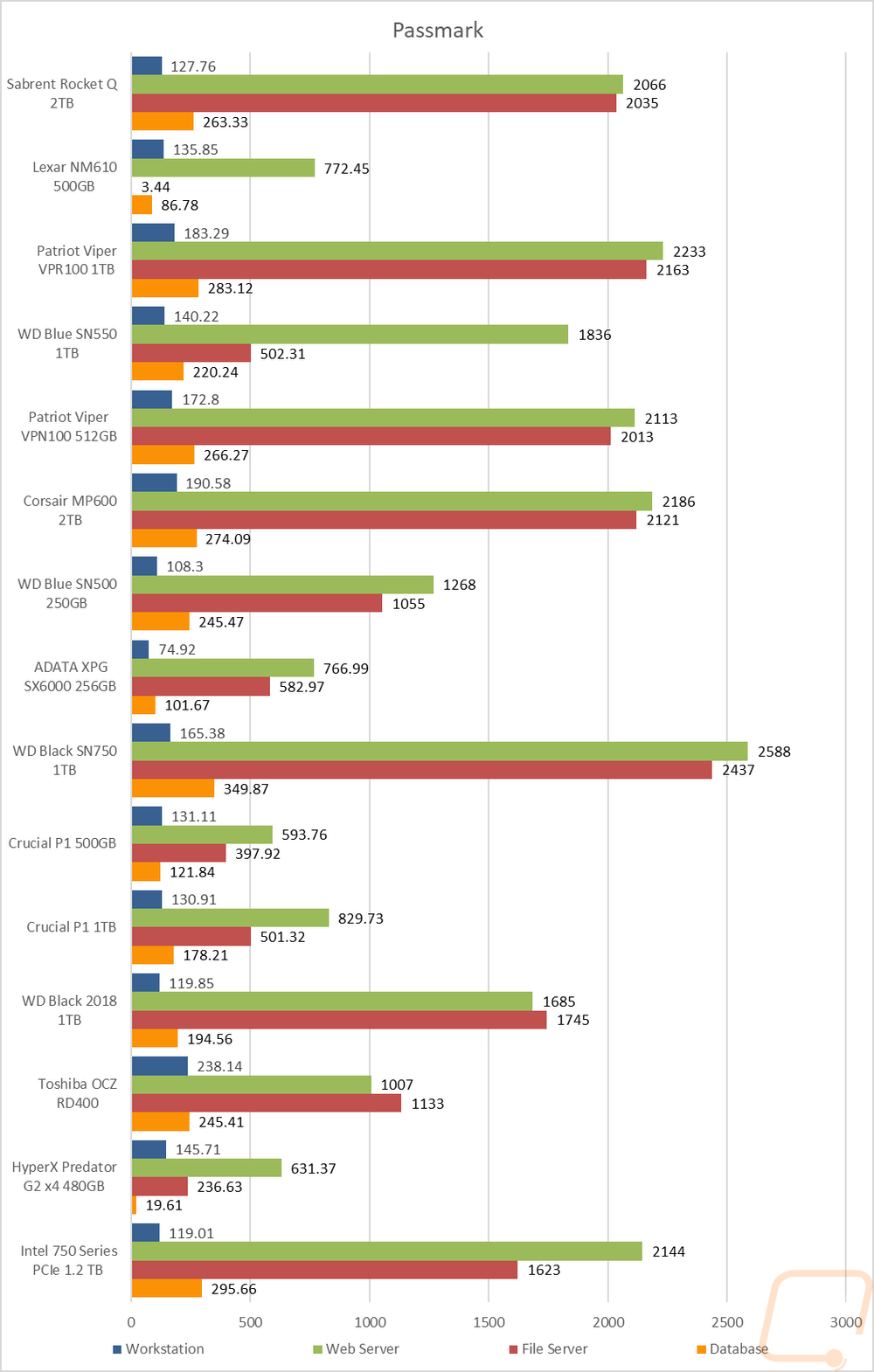
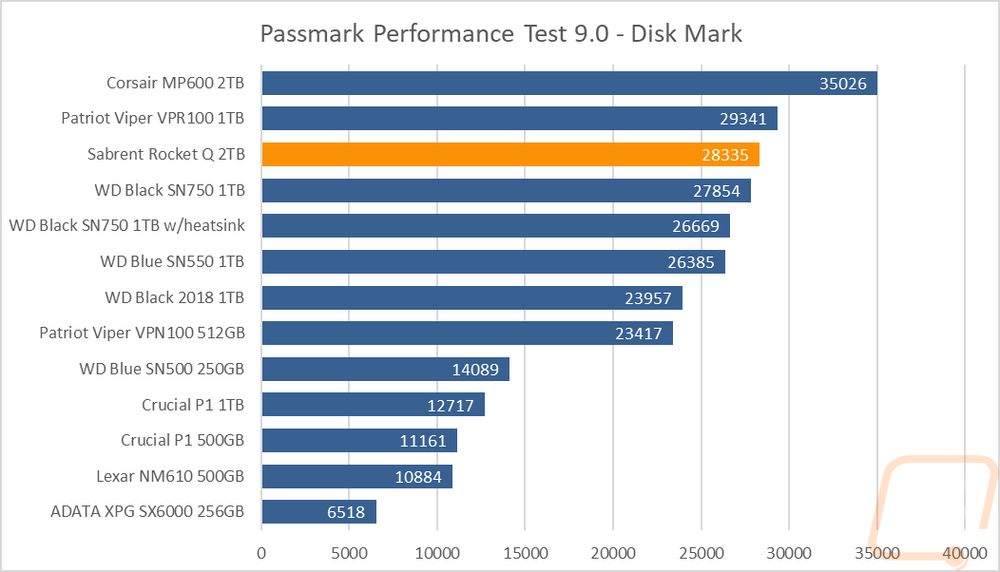
Using Anvil’s Storage Utilities I took another look at IOPS, this time with random IOPS at a queue depth of 16. The Rocket Q did well here, coming in just behind the VPR100 and the SN750 for PCIe 3.0 drives.
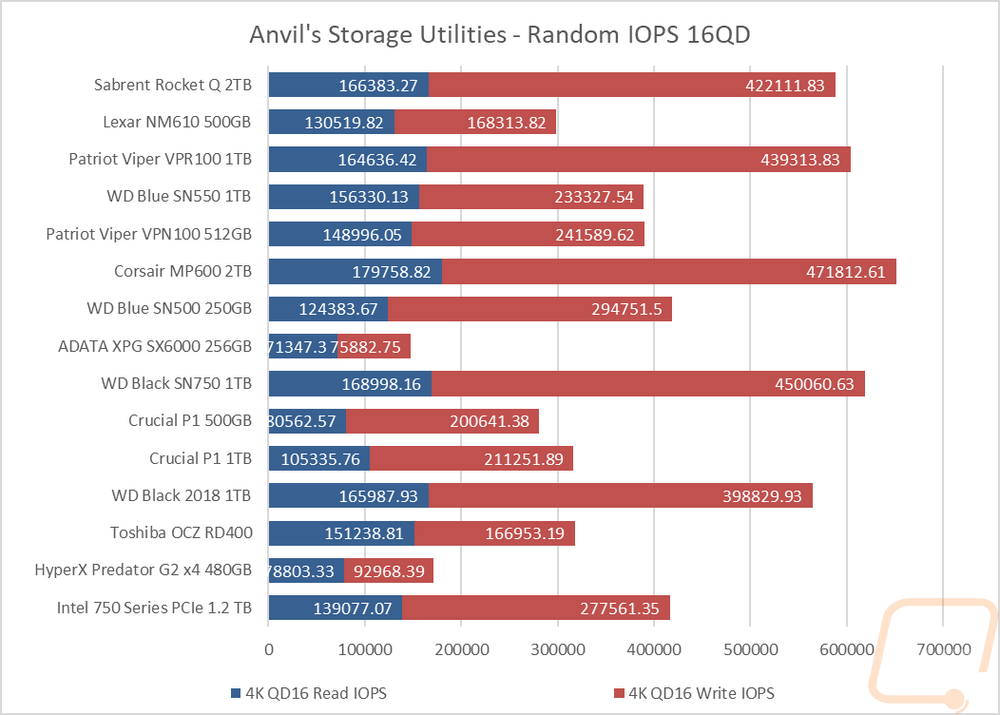
I also used Anvil’s Storage Utilities to take a wider look at queue depth performance. For this, I manually tested both read and write speeds while stepping up the queue depth higher and higher to see if the 8 thread Phison controller would drop off. After a queue depth of 32, it didn’t drop in performance but the gains between tests were much smaller at that point on the read test. In the write test however it did extremely well up to a queue depth of 32 with only the PCIe 4.0 MP600 being faster but there was a drop off for the 64 queue depth result but again the Rocket Q was up in the top two drives there.
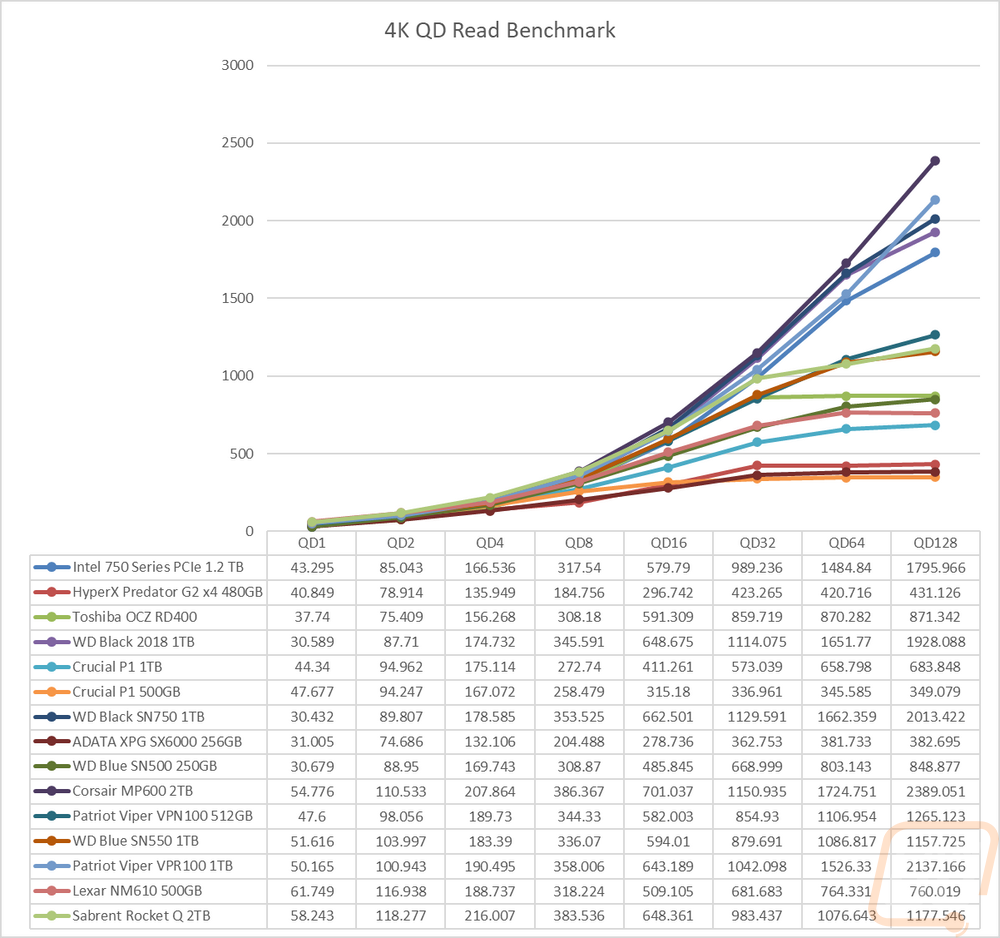
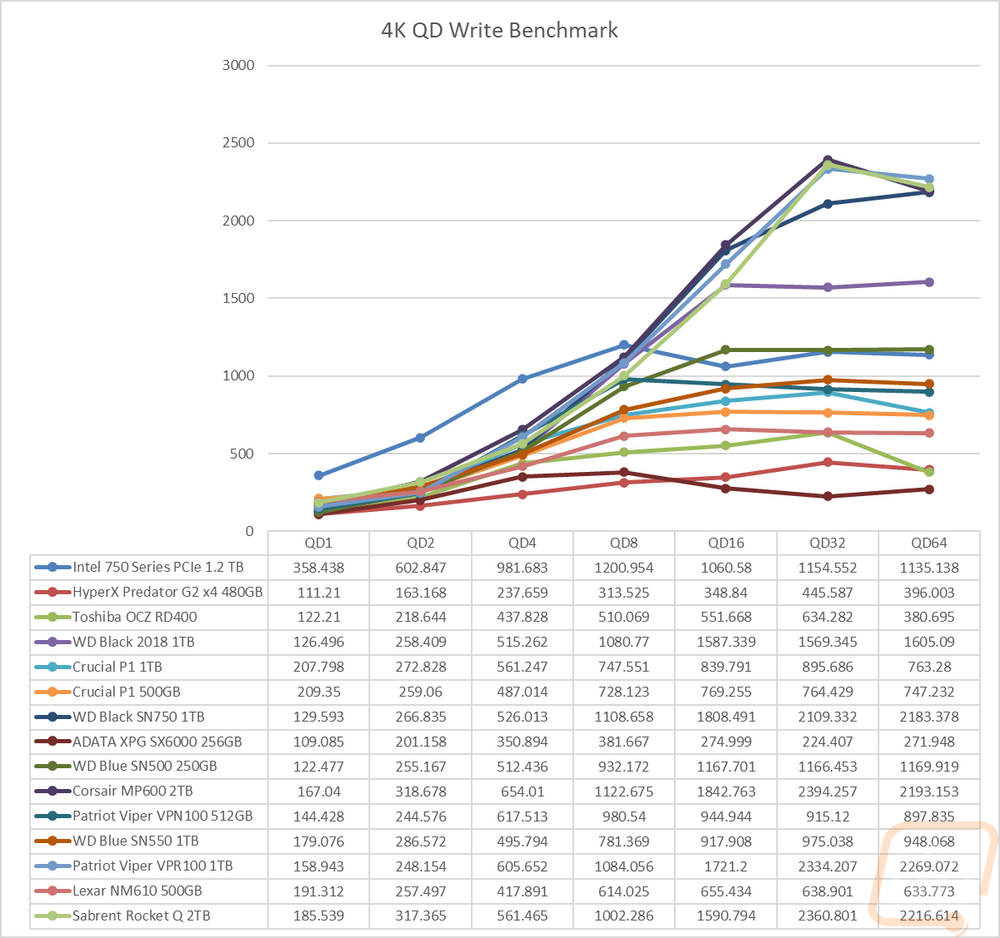
I also wanted to check out thermals, so while running the AIDA64 Disk benchmark I used our thermal camera to get a look. I was mostly concerned with the controller on the Rocket Q being packed in between the last NAND and the DDR3L memory causing performance to drop but in the half-hour test performance stayed consistent across the board. The controller end of the drive did run warmer but the drive overall didn’t run too hot even after that stress test.




